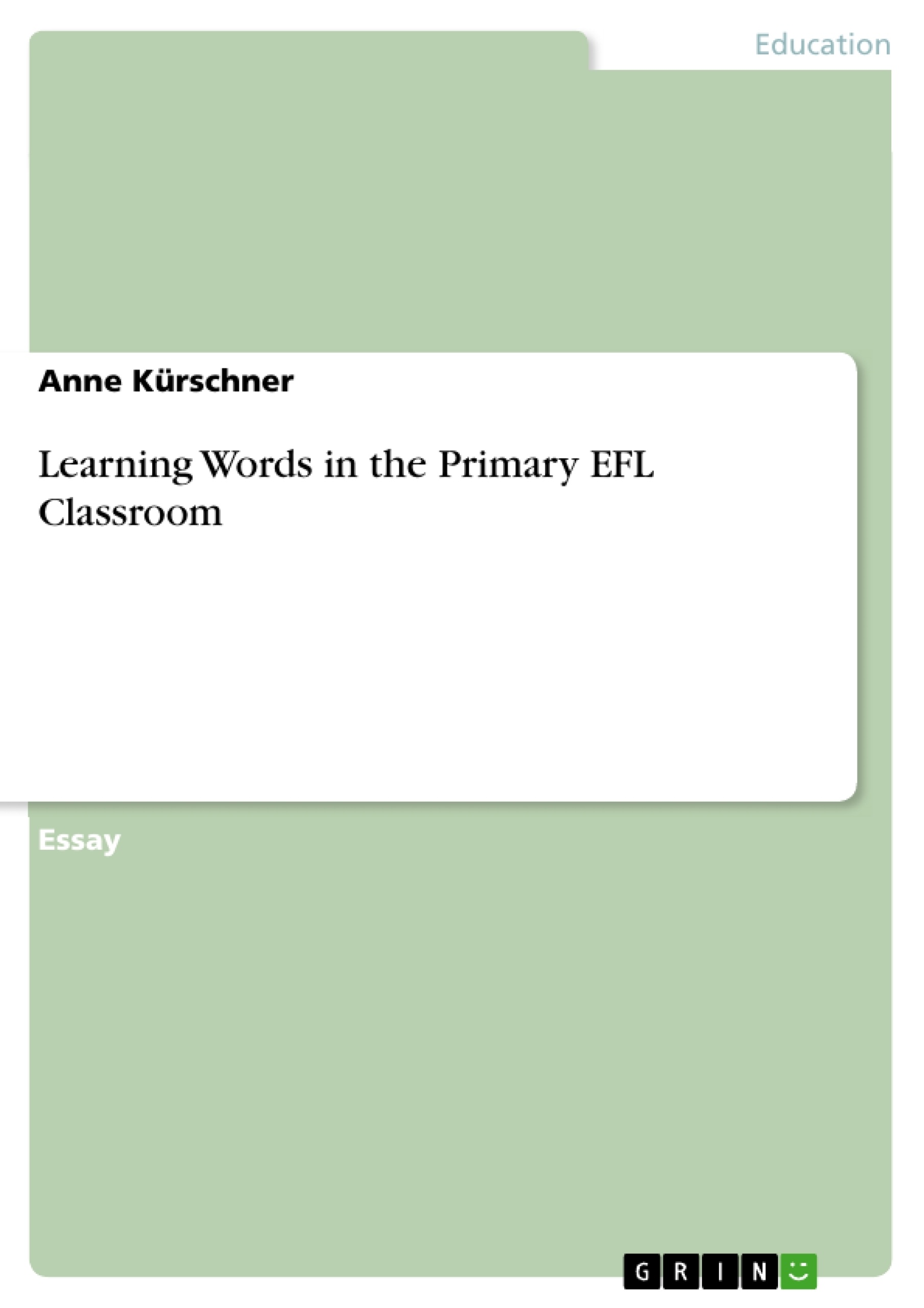This paper explores the importance and advantages of situated learning and provides an approach for the teaching of English vocabulary in the foreign language classroom. It reviews theoretical research and discusses the results of a recent micro-teaching experiment. The experiment is linked to the theoretical knowledge.
I consider situated learning as an appropriate teaching method in primary school and summarize several reasons for my opinion in this paper.
Inhaltsverzeichnis (Table of Contents)
- Introduction
- Theories of situated learning
- Increased motivation of children in situated learning
- Authentic situations let the children connect to their own knowledge
- Raising the learning achievements through situated learning
- Micro-teaching experiment: Learning words
- The presentation stage part I
- The presentation stage part II
- The production stage
- Results of the experiment regarding the theory
- Final remarks
- References
Zielsetzung und Themenschwerpunkte (Objectives and Key Themes)
This paper investigates the significance and advantages of situated learning and proposes a suitable approach for teaching English vocabulary in the foreign language classroom. It examines theoretical research and discusses the findings of a recent micro-teaching experiment which explored different teaching methods for learning words in the Primary classroom. The experiment is then linked to the theoretical framework presented in the paper.
- Importance of situated learning for English vocabulary acquisition
- Increased motivation of children in situated learning environments
- The role of authentic situations in connecting new vocabulary to existing knowledge
- The effectiveness of situated learning in enhancing learning achievements
- Applying situated learning principles in primary school English classrooms
Zusammenfassung der Kapitel (Chapter Summaries)
- The Introduction establishes the importance and advantages of situated learning, particularly for English vocabulary instruction in the foreign language classroom. The paper outlines the theoretical research and discusses the results of a micro-teaching experiment exploring various teaching methods for vocabulary learning in the primary classroom.
- The chapter on Theories of Situated Learning explores the benefits of embedding vocabulary learning in a context. The author argues that learners are more motivated when they learn from real-world situations and can connect new vocabulary to their own experiences. This approach is seen as a more engaging alternative to traditional methods that focus on memorization of isolated words.
- The chapter on Micro-teaching Experiment: Learning words describes the experimental design and methodology. The focus is on presenting the different stages of the experiment, including the presentation stage and the production stage, where students actively utilize their newly acquired vocabulary. The experiment aims to test the effectiveness of situated learning in promoting vocabulary acquisition.
Schlüsselwörter (Keywords)
The paper focuses on the use of situated learning in English vocabulary instruction. The primary concepts include learner motivation, authentic contexts, vocabulary acquisition, and the effectiveness of teaching methods. The micro-teaching experiment explores the application of these concepts in the primary classroom, with a focus on enhancing students' language skills and engagement with English vocabulary.
Frequently Asked Questions
What is situated learning in the context of EFL?
Situated learning is a teaching method where vocabulary is learned within authentic, real-world contexts rather than in isolation.
Why is situated learning beneficial for primary school students?
It increases motivation and allows children to connect new English words to their existing personal knowledge and experiences.
What was the focus of the micro-teaching experiment?
The experiment explored different stages of learning words, specifically the presentation and production stages in a primary classroom setting.
Does situated learning improve learning achievements?
Yes, the paper argues that this approach enhances learning outcomes by making the language acquisition process more engaging and meaningful.
What are the stages of vocabulary presentation mentioned?
The experiment outlines a two-part presentation stage followed by a production stage where students actively use the new words.
- Quote paper
- Anne Kürschner (Author), 2008, Learning Words in the Primary EFL Classroom, Munich, GRIN Verlag, https://www.grin.com/document/161104



